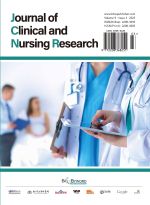Abstract
This study aimed to investigate the effect of evidence-based nursing intervention on patients undergoing nasal endoscopic resection of nasal polyps, particularly focusing on its impact on MIGILL’s pain scores. A total of 74 patients who underwent endoscopic nasal polyp resection were randomly divided into two groups using a random number table method. The outcomes of evidence-based nursing intervention in the observation group were compared with those of the control group. The results showed that the MIGILL pain scores in the observation group were significantly lower than those in the control group, and both hospitalization time and cost were notably reduced (P < 0.05). Additionally, patients in the observation group demonstrated better psychological states and experienced fewer postoperative complications compared to the control group (P < 0.05). Furthermore, the quality of life scores were significantly higher in the observation group (P < 0.05). These findings suggest that evidence-based nursing intervention after endoscopic resection of nasal polyps is highly effective in alleviating postoperative pain, improving emotional well-being, minimizing complications, reducing hospital stay and expenses, and enhancing overall quality of life, indicating its potential value for broader clinical application.
References
Bao N, Xia J, Jiang S, et al., 2024, Effect of Wrist and Ankle Acupuncture Combined With Systematic Nursing on Pain Symptoms and Comfort in Patients With Chronic Sinusitis and Nasal Polyp. Nursing of Integrated Chinese and Western Medicine, 10(9): 45–48.
Zhuang L, Yang X, Xie A, et al., 2019, Analysis of the Effect of Quality Nursing on Sleep Quality of Patients With Chronic Sinusitis Complicated With Nasal Polyps After Nasal Endoscopic Surgery. World Journal of Sleep Medicine, 11(6): 1329–1332.
Yu X, Song W, Zhang J, 2019, Effect of Evidence-Based Nursing Model on Patients After Endoscopic Resection of Nasal Polyps. Journal of Qilu Nursing, 26(14): 24–26.
Chinese Journal of Otolaryngology Head and Neck Surgery Editorial Committee, Rhinology Group, Chinese Medical Association Otolaryngology Head and Neck Surgery Society, 2019, Chinese Guidelines for Diagnosis and Treatment of Chronic Sinusitis (2018). Chinese Journal of Otolaryngology Head and Neck Surgery, 54(2): 81–100.
Zhang R, Cai Y, Sun X, et al., 2017, Application of High Quality Nursing in Postoperative Care of Patients With Rhinosinusitis and Nasal Polyps Undergoing Nasal Endoscopic Surgery. Life Science Instruments, 22(6): 202–204.
Zhao Y, Zhai X, 2023, Effect of Comprehensive Nursing Intervention on Nursing Effect of Patients With Rhinosinusitis and Nasal Polyp Treated by Nasal Endoscopic Surgery. Life Science Instruments, 21(z1): 446.
Li Y, Liu B, 2019, Application of Cluster Nursing in Endoscopic Sinus Surgery in Patients With Chronic Sinusitis and Nasal Polyps. Journal of Hebei North University (Natural Science Edition), 39(4): 43–46.
Li X, Wang Q, 2022, Effect of Nursing Intervention on Quality of Life and Satisfaction After Nasal Endoscopic Surgery for Chronic Sinusitis and Nasal Polyps. Life Science Instruments, 20(z1): 434.
